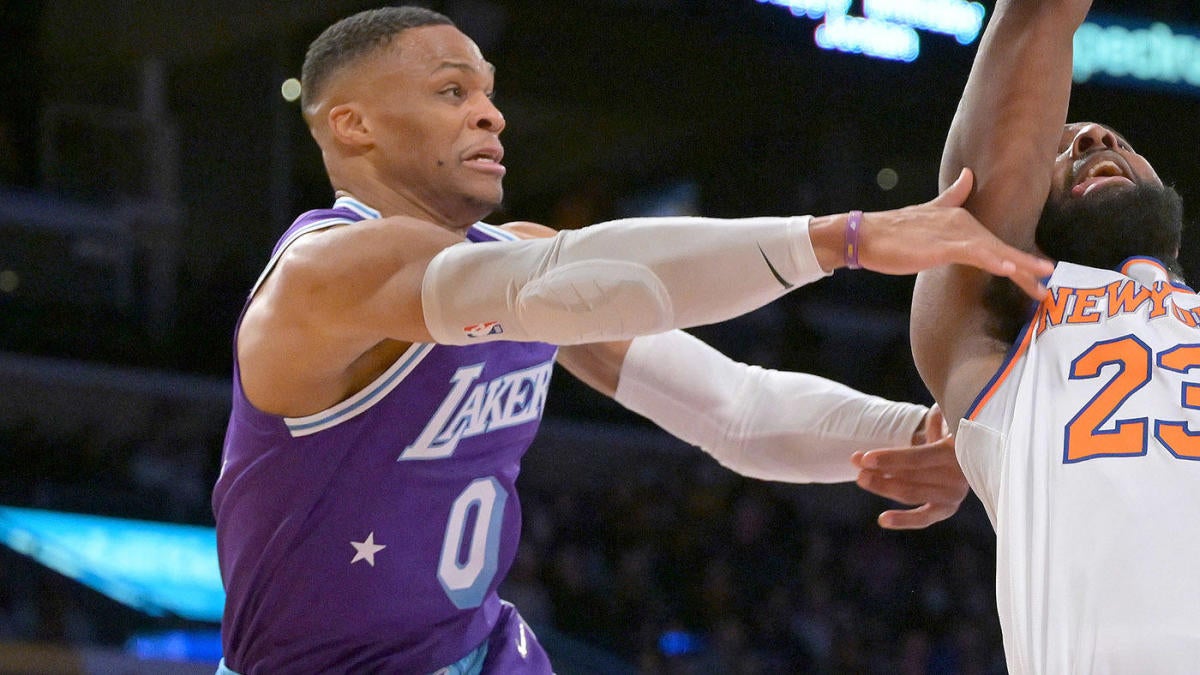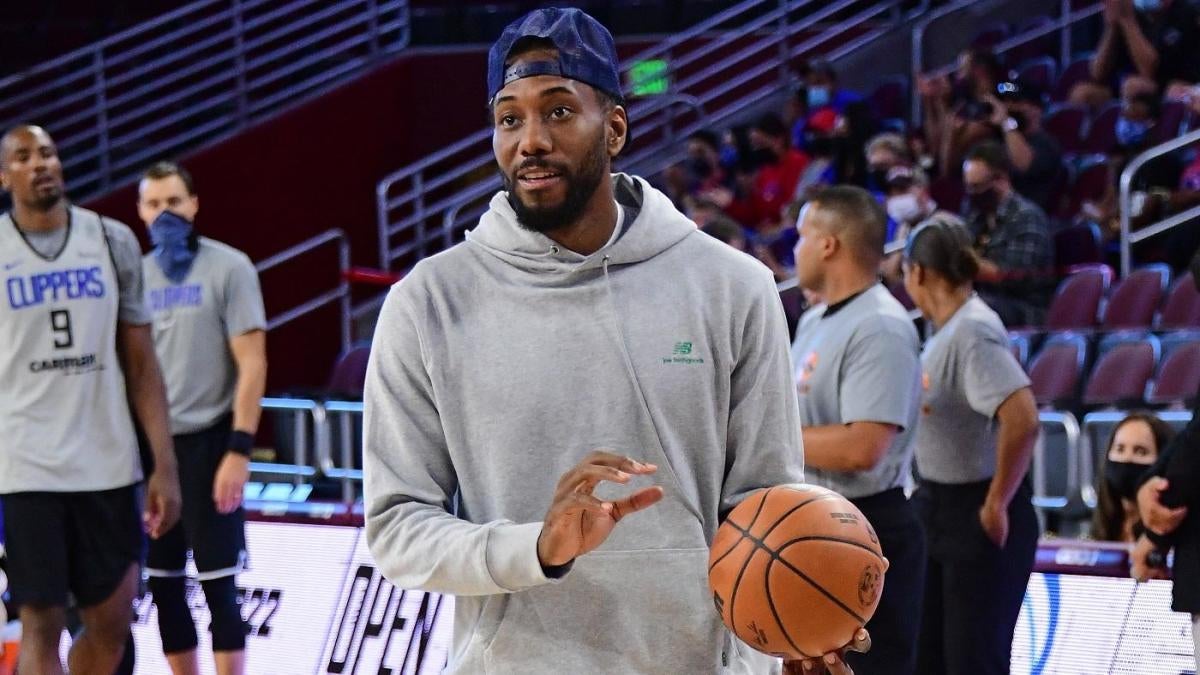Russell Westbrook’s role with Lakers murkier than ever after overtime benching leads to crucial win
Written by ABC AUDIO ALL RIGHTS RESERVED on February 7, 2022

Russell Westbrook got booed by his home fans on Saturday. That’s not especially abnormal among big-market NBA teams, especially when a player hits the side of the backboard as Westbrook did in the second quarter. Booing is a fairly predictable response. It’s visceral, the accumulation of frustration pent up over the course of a game, a stretch or a whole season. But something a bit more unusual happened to Westbrook in the fourth quarter.
With the Lakers leading the New York Knicks by six with a bit three minutes and some change left on the clock, Malik Monk passed to Westbrook in the corner for what should have been a fairly open 3-pointer. He hesitated, and when he did, the crowd didn’t boo. Booing is a reaction to something negative, a planned response. No, the fans at Crypto.com Arena did something more instinctual. They practically pleaded. Don’t take the shot Russ. Anthony Davis is rolling to the basket, Russ. Anything else, Russ. But with the 7-foot Mitchell Robinson right in his face and a collective groan rolling through the crowd, Westbrook hoisted up the sort of ill-fated clunker he’d missed all game, all season, and really, throughout his entire career.
Anthony Davis cleaned up the mess with a putback. He, and several of his teammates, encouraged Westbrook not to hesitate.
“He’s got to stay out of his own head,” Davis said after the game. As that hesitation demonstrated, it’s a dissonance Westbrook is visibly struggling with. Teammates are telling him one thing. Fans, another. His instinct to play one way is conflicting with his team’s need for him to play another.
What we’re getting is an unsatisfying middle ground. Westbrook isn’t controlling games physically the way he once did, nor is he excelling within the flow of games the way his team needs him to. The confidence that helped make him special is receding, but it hasn’t been replaced by the humility necessary to age gracefully out of stardom. He wants to take shots he used to be good enough to take. He knows that he shouldn’t take those shots. He hasn’t yet figured out how else to contribute to his team. So he takes the shots anyway and usually misses them. It’s a cycle the coaching staff is growing increasingly disinterested in enabling.
Westbrook was benched for overtime against the Knicks. It wasn’t all that surprising considering it was an overtime his poor night helped create. It wasn’t even the first time this season that Frank Vogel has done it, with an early benching coming in the fourth quarter of a recent game against the Indiana Pacers. But this one was different largely because of how well the suddenly healthier Lakers played without him. Davis was spectacular. LeBron James was better. Malik Monk stood in as the third scorer they’ve so desperately craved. And when Westbrook wasn’t on the floor Saturday, the Lakers outscored the Knicks by 22 points.
It was proof of concept. There is a version of this roster, with a healthy James and Davis, that is capable of overcoming 19-point deficits and rallying for victories. It just didn’t include Westbrook. Vogel was blunt about it. After declaring that he was “playing the guys that I thought were going to win the game” after Westbrook’s first fourth-quarter benching, he acknowledged Saturday that “Russ was having a tough night, on both sides of the ball.” He said that he figured he’d get more off-ball and defensively from Talen Horton-Tucker, and that with LeBron James rolling, he assumed the ball would be in his hands most of the time.
That is, of course, an assumption that should be made about most games. Considering Westbrook’s nonexistent improvement as a defender and off-ball player this season, the perceived benefits of Horton-Tucker should ring true moving forward as well. By this logic, it really doesn’t make sense to use Westbrook much at all late in games. If he’s not going to help on the ball and he’s not going to help off of it, where is he going to contribute?
It’s a question the Lakers have to mull with the trade deadline coming up. Rumors linking them to John Wall have persisted for well over a month. Even if the Lakers don’t deal Westbrook directly, another trade could drastically change his workload. If Kendrick Nunn returns healthy, could he bump Westbrook from the starting lineup?
These sorts of questions were as common as booing fans for most of the season. Interesting but irrelevant. Teams don’t marginalize players as famous as Westbrook until they’re pushed to their absolute limit. Just like those poor fans, the Lakers pleaded with Westbrook to improve. They spent months giving him the minutes and opportunities to do so. But he hasn’t. He’s played badly. The Lakers have seemingly crossed the threshold where they no longer seem willing to tolerate that, and if they have, and Westbrook remains caught in the void between where he wants to play and where the team needs him to play, then his role is going to shrink to something more commensurate with his actual performance.
The post Russell Westbrook’s role with Lakers murkier than ever after overtime benching leads to crucial win first appeared on CBS Sports.



